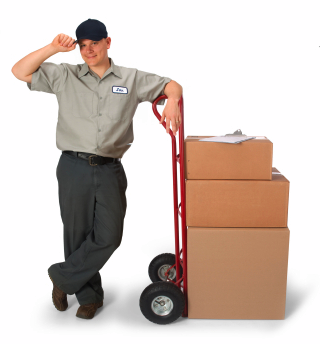Every time the key is turned in a lorry, it costs money. Every trip the lorry makes costs more money. When a haulage contractor is hired to take a load from point A to point B, he can charge the appropriate rate, but returning with an empty trailer basically halves the profit, or worse, yet, means a loss. Having return loads in Leicester is fast becoming an economic necessity.
It is obvious that every leg of the delivery costs money for fuel, the driver’s wages, amortization of the loans that you may have and lorry depreciation. These are all expected in the haulage business when the vehicle is loaded with cargo which is being transported for a fee. The fee is expected to cover all the costs associated with operations as well as providing a profit.
If there are no return loads in Leicester, then the return trip is costing money rather than making it. The issue with a back load is that you are returning to the point of origin with a load. In cases where there is not a load to be transported to the point of origin, the driver will often accept a load to an alternative destination, hoping that he can find a return load there that will take him home.
This scenario is true for all trucking companies, with the exception perhaps of company’s who are contracted to carry group freight back and forth between two points on a continuous basis. It makes a great deal of economic sense for all trucking company’s who do the problem to work together to solve the problem.
The issue of return loads in Leicester is bad enough when the economy is healthy, but with the economy being weak in the last few years, the problem has become exacerbated to the point where many haulage companies have failed. If you are contracted to take a load from near your base of operations to a distant point, you are a long way from base with the possibility of returning empty, a condition that no hauler wants to face.
If you can find return loads for a high percentage of your trips, then you can go a long way to reducing the negative economic impact of returning with an empty vehicle. Finding the return load may take time but it is well worth it; you will make money and waste less.
The carbon footprint:
Assume that a lorry has to deliver a load 120 miles away. If you drive the distance, drop off the load and return empty you are using a similar amount of fuel should you return loaded. The carbon footprint is the same whether the return trip is made empty or full. It makes a great deal of sense, both economic and environmental to carry a load for another haulage company.
If all trucks were to find return loads in Leicester, theoretically there would be fewer vehicles on the road.


